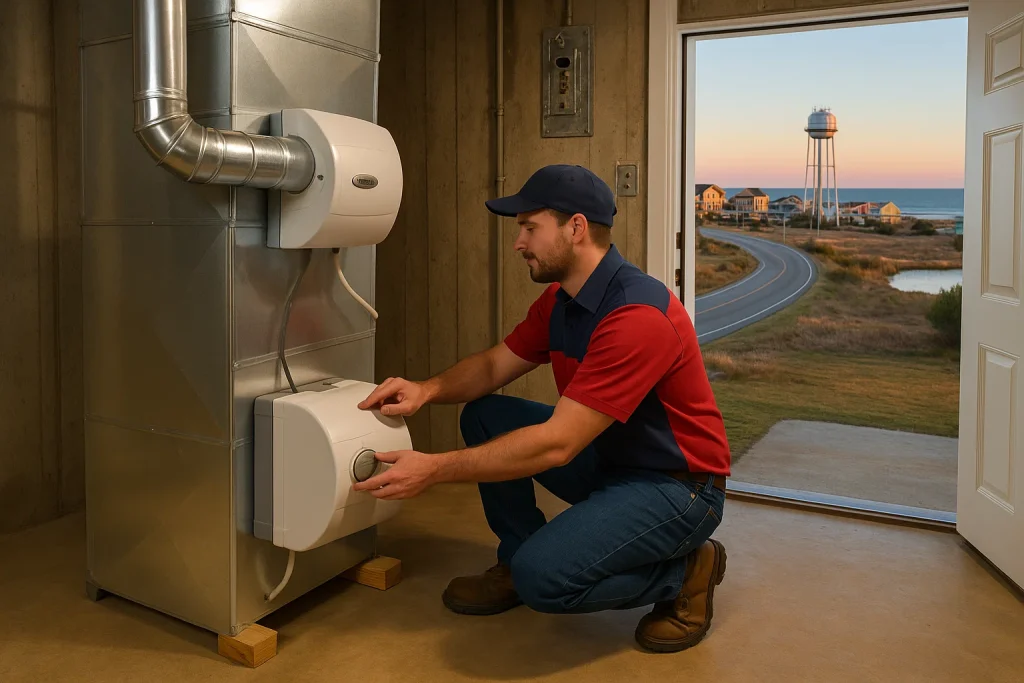Late summer in Surf City, North Carolina, means warm ocean breezes, beach days, and plenty of coastal charm—but it also means high humidity. While the salty air might feel refreshing outdoors, that same moisture can cause big problems inside your home.
Excess humidity isn’t just uncomfortable—it can damage your home, encourage mold growth, and worsen indoor air quality. As your local HVAC experts, we’re here to share practical tips to help you fight humidity, protect your home, and keep your air fresh during our muggy late summer months.

Why Humidity Is a Problem in Coastal Homes
Humidity is the measure of moisture in the air, and coastal towns like Surf City naturally have higher levels because of their proximity to the ocean. By late summer, humidity often hovers well above 60%, which is higher than the ideal indoor range of 30–50%.
When moisture builds up indoors, it can:
- Make your home feel warmer than it is
- Create the perfect environment for mold and mildew
- Cause wood floors and furniture to warp
- Lead to musty odors and stale air
- Trigger allergy and asthma symptoms
Tip 1: Use a Whole-Home Dehumidifier
While air conditioners remove some moisture from the air, they aren’t designed to handle extreme humidity on their own—especially in late summer when temperatures are still high. A whole-home dehumidifier works alongside your HVAC system to maintain ideal humidity levels throughout your house.
Not only will your air feel cooler and more comfortable, but you’ll also protect your home from long-term moisture damage.
Tip 2: Keep Air Circulating
Stagnant air traps humidity and odors, making rooms feel stuffy. Ceiling fans, portable fans, and your HVAC fan setting can help keep air moving. Just remember—fans don’t remove humidity, but they help you feel cooler by improving air circulation.
For kitchens and bathrooms, always use exhaust fans to vent moisture outside, especially after cooking or showering.
Tip 3: Seal Air Leaks
If humid outdoor air is sneaking into your home through gaps around windows, doors, or ductwork, it will be much harder to control moisture levels. Weatherstripping, caulking, and professional duct sealing can prevent excess humidity from entering your home and improve your HVAC system’s efficiency.
Tip 4: Control Moisture at the Source
Dry laundry outside or use a vented dryer to avoid pumping moist air back into your home. Fix plumbing leaks immediately—hidden drips under sinks or behind appliances can quickly raise indoor moisture levels. Limit indoor plants during peak humidity season, as they can release additional moisture into the air.
Tip 5: Schedule HVAC Maintenance
Your HVAC system plays a huge role in controlling humidity and maintaining good indoor air quality. Late summer is a smart time for a tune-up to ensure your system is running efficiently before the demands of fall and winter. During maintenance, we’ll check for issues that could be affecting moisture control such as clogged filters, dirty coils, or improper airflow.
At Gideon Heating & Air Conditioning, we like to say that our work isn’t just good—it’s Gideon Guaranteed! Contact us today to schedule HVAC services.
